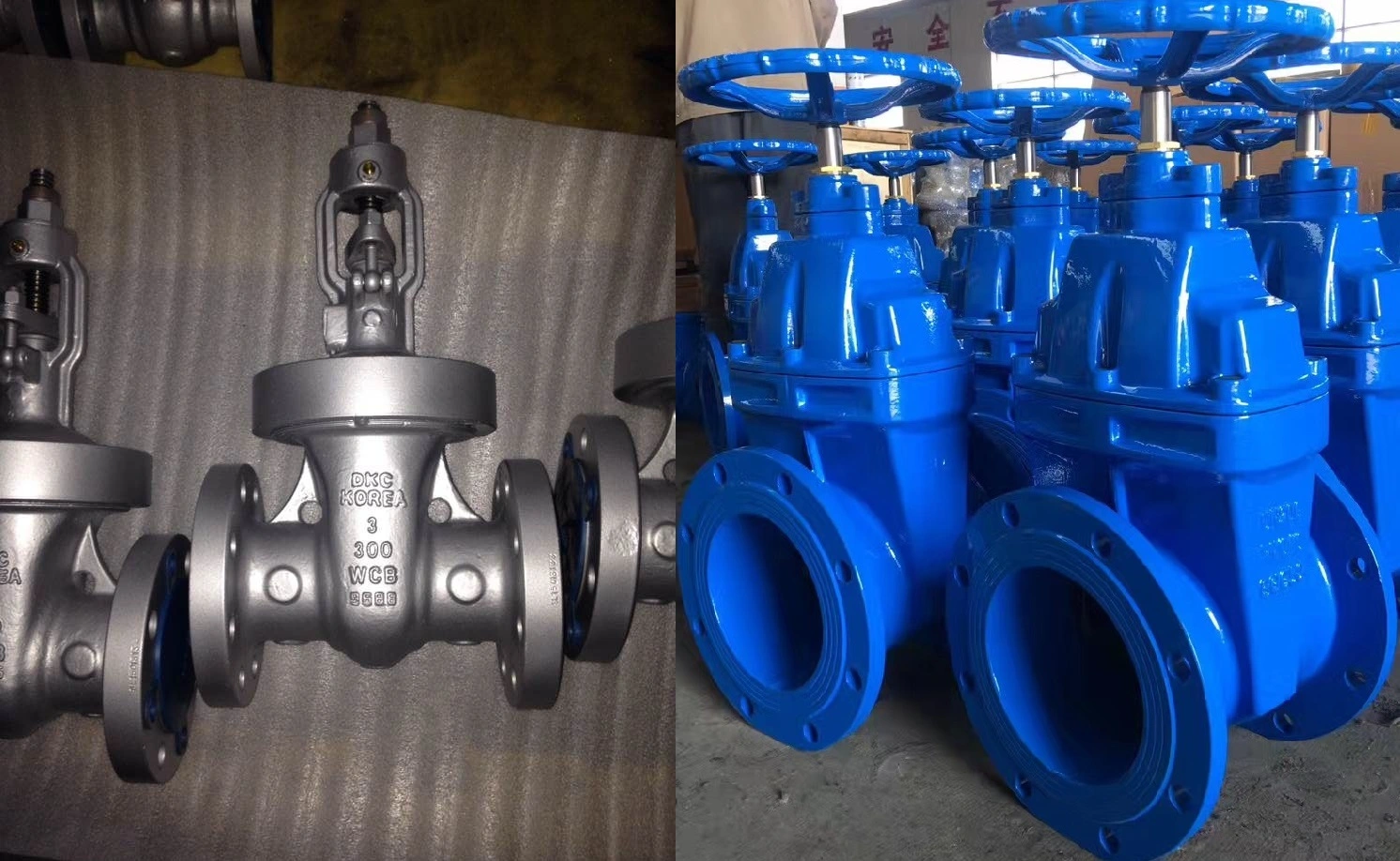There are mainly two types of gate valves in the market – the rising stem gate valve and non-rising stem gate valve. Maybe you are now in a
dilemma and don’t know how to make a choice.
Rising stem gate valves are usually made from cast or forged steel while non rising stem gate valves are more typically brass, bronze or cast iron.
Non rising stem valves take up less space and rising stem valves require more space. In the rising stem gate valve, the round handle rotates a threaded
shaft which is attached to its center. Turning the handle will cause the stem to rise as it opens the valve and descend as it closes the valve. With a rising
stem gate valve it is easy to tell if the valve is open or closed by looking at the amount of stem that is exposed. If the handle is flush with the pipe (no
exposed stem), the valve is closed. If a lot of stem is exposed, the valve is open. This simple system has a couple of disadvantages which can be avoided
compared with another type of gate valve: the non-rising stem gate valve. As for the non-rising stem gate valve, it is usually suitable for tight places where
there is not enough room for the stem to raise, for example, places with underground pipes. The non-rising stem gate valve is fully open when the handle
is rotated as far as possible to the left and fully closed when the handle is rotated as far as possible to the right. In both cases the handle is flush with the
pipe because the mechanism inside the pipe opens and closes the valve without raising the stem.
Another advantage to the non-rising stem gate valve is that it is easier to padlock. With the rising stem gate valve, two different size padlocks could be
needed to lock the valve open and closed. With the non-rising gate valve one padlock is enough. But the disadvantage of a non rising stem valve is the
fact that the screw threads that lift the gate are exposed to the fluid being controlled by the valve. This can cause problems if the fluid tends to foul the
threads, so non rising stem valves are usually only used on clean liquids and gases.

